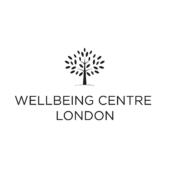Online Postpartum Depression therapists in United Kingdom
We are proud to feature top rated online Postpartum Depression therapists in United Kingdom. We encourage you to review each profile to find your best match.
Aleksandra Pamphlett - Cert. Coach & Psychologist
Life Coach, MAC, MSc, BSc Hons,
Welcoming a new life into the world is a profound experience, but the postpartum period can bring unexpected challenges. As a compassionate psychologist specializing in women's health (mums' in particular), I'm here to provide a supportive and understanding space for mothers navigating the complex landscape of emotions. Together, we'll gently explore the feelings that arise during this transformative time, addressing the unique challenges of postpartum depression. My approach is rooted in empathy, offering personalized strategies to cope, heal, and rediscover the joy in motherhood. If you're finding this journey overwhelming, remember, you're not alone. Let's embark on a path of healing together, embracing the support and understanding you deserve.
11 Years Experience
Online in Germany, Ireland, United Kingdom
(Online Only)
Dr Grenville Major
Therapist, MBchB, MRCpsych, MSc psychological therapies
Society expects new mothers to be sublimely happy with the birth of a child but many mothers for often complex reasons struggle when they have a newborn. Understanding your individual reasons can help detoxify the sadness and restore you equilibrium. Therapy can help you do this. I would like to meet with you to see what can be done to help you. This will enable us to get to know each other and see if we can work together. It’s important for you to work with someone you trust and feel safe with.
44 Years Experience
Gemma Autumn
Counsellor/Therapist, Integrative Adult and Adolescent Counsellor Cert, PgDip, MBACP Accredited
I work with those going through issues related to postpartum depression.
9 Years Experience
In-Person in London, England
Online in United Kingdom
Jonathan Livingstone Therapy & Coaching
Psychologist, MSc, MA, PGCE, GMBPsS
If you are suffering from post-natal depression, there are reasons for how you are feeling relating to your past and present circumstances. We will find out what lies behind these feelings and address them, including experiences from the past, so that you can regain your full functioning as a human being and a mother.
27 Years Experience
In-Person in Stourbridge, England DY8 3RZ
Online in United Kingdom
Dr Aneliya Gonsard
Psychologist, DClinPscy, MSc, BA
Becoming a mother is a huge event in a woman's life, accompanied by profound changes - physical, emotional, social. Becoming depressed a after giving birth makes coping with and adapting to these changes very challenging. Many new mothers struggle in silence.
I offer a confidential space where we can talk about your experience of becoming a mother, its meaning and the impact that it has on your life - internal and external.
15 Years Experience
In-Person in Plovdiv, Bulgaria
Online in France, Germany, United Kingdom
Wellbeing Centre London
Registered Psychotherapist, Psychotherapy, Counselling, Psychology, CBT, EMDR and Therapy, Coaching
We provide effective Postpartum Depression counselling and therapy.
15 Years Experience
Alison Edwards Therapy & Supervision
Psychologist, CBT Therapist, FMBPsS, MA (Hons), MSc, CertCouns, MSc
I provide Cognitive Behaviour Therapy, ACT and person-centred counselling, which are the recommended psychological therapies for depression. I have experience of supporting clients who have had a previous episode of depression before their post-partum/ post-natal depression, and clients who have been feeling depressed for a long time.
17 Years Experience
Online in Netherlands, Spain, United Kingdom
(Online Only)
Birgit Schreiber Dr
Psychologist, PhD and MA in Psychology
Postpartum is a tricky period for everyone, and when it gets particularly 'stuck' in any one way, online therapy can be very helpful.
25 Years Experience
Online in Australia, United Kingdom
(Online Only)
Marianna Trezza -The Growing mindset
Counsellor/Therapist, MA (Hons), Adv Dip. Counsel. & Psychoth.,Dip. Hypnoth., X-Cultural Adaptation Coun. Reg. BACP 572613
I hear you, and I want you to know that what you're experiencing is completely valid. Becoming a parent is a profound life change that affects every aspect of your being, and it's natural to feel overwhelmed and misunderstood.
The physical changes to your body, the disruption to your sleep and social life, and the hormonal shifts can be incredibly challenging. It's frustrating when those around you, even your partner or close family, don't seem to grasp the magnitude of what you're going through.
You might be feeling:
Exhausted beyond anything you've experienced before
Isolated from your pre-baby social circles
Anxious about your new responsibilities
Overwhelmed by the constant demands of caring for your child
Misunderstood or dismissed when you try to express your struggles
It's important to remember that these feelings don't make you a bad parent. They make you human. Adjusting to parenthood is a journey, and it's okay to need support along the way.
I'm here to offer you that support - a safe space where you can express all your feelings without judgment. Together, we can work on strategies to help you navigate this new chapter of your life, address your concerns, and find ways to communicate your needs to those around you.
You're not alone in this. Reach out when you're ready, and let's work together to help you find your footing in this new role. Your well-being matters, both for you and for your child.
22 Years Experience
In-Person in London, England NW5
In-Person in Orpington, England BR5
Online in Australia, Italy, United Kingdom
Vicky Mould
Counsellor/Therapist, Accredited Professional Registrant (PNCPS Acc.)
Are you a new Mum or Dad and concerned about or struggling with postnatal depression? I've received training in PND, and I can offer a safe, accepting and supportive environment - where you can talk openly without being shamed, judged or criticised. We can work at your pace to explore your thoughts, how you are feeling and coping, relationship issues or concerns, and any increasing anxieties about your baby. Working together can relieve that sense of overwhelm, guilt or fear and help you work towards enjoying parenthood and being the parent you'd like to be. If you'd like to explore postnatal depression counselling, please get in touch with me to arrange a low-cost consultation.
14 Years Experience
Online in United Kingdom
(Online Only)
Liz Frings
Counsellor/Therapist, PG Diploma Person-Centred Psychotherapy. EMDR Accredited
How Therapy Helps Creating a Safe Space to Be Honest -
One of the most valuable aspects of therapy is having a confidential, judgment-free space to express how you're really feeling. Many new parents feel they can't admit they're struggling because of guilt or shame. A therapist understands that postpartum depression is a medical condition, not a choice, and won't judge you for your feelings.
Breaking the Isolation
PPD can make you feel incredibly alone, like you're the only one who isn't coping. Therapy helps you understand that what you're experiencing is common and treatable. Your therapist can normalize your struggles while also helping you work through them.
Addressing Negative Thoughts
PPD often comes with harsh self-criticism and distorted thinking—"I'm a terrible mother," "My baby would be better off without me," or "I've made a huge mistake." Therapies like Cognitive Behavioral Therapy (CBT) help you recognize and challenge these unhelpful thought patterns, replacing them with more balanced, compassionate perspectives.
Processing Birth Trauma
Sometimes PPD is connected to a traumatic birth experience. If your labor was frightening, you felt out of control, or you had medical complications, therapies like EMDR can help process these traumatic memories so they're less emotionally overwhelming.
Developing Coping Strategies
Your therapist can teach you practical tools for managing anxiety, improving sleep hygiene (as much as possible with a newborn!), setting boundaries, and asking for help. They can also help you create realistic expectations for yourself during this demanding time.
Working Through Identity Changes
Becoming a parent fundamentally shifts your identity, and that adjustment can be harder than expected. Therapy provides space to grieve your pre-baby life while also finding meaning and connection in your new role. You can explore feelings about losing independence, career changes, relationship shifts, and body image concerns.
Strengthening the Parent-Baby Bond
Some therapeutic approaches include guidance on connecting with your baby, even when PPD makes bonding feel difficult. This might involve gentle exercises that help you tune into your baby's cues and build confidence in your parenting abilities.
Addressing Underlying Issues
Sometimes PPD brings up or intensifies existing mental health challenges, past trauma, or relationship problems. Therapy provides an opportunity to address these deeper issues in a supportive environment.
14 Years Experience
In-Person in Nottingham, England NG2 6EP
In-Person in Nottingham, England NG3 6BW
Online in United Kingdom
Sara Aicart-Pendlebury
Art Therapist, Human Givens Practitioner (HG.Dip.P), Member of Human Givens Institute, IFS therapist Levels 1&2, Narm Practitioner
Contrary to common belief, depression is not primarily a biological illness, inherited through the genes. Nor is it the setbacks, crises or tragedies in our lives that cause depression. It is our response to adverse events that determines whether we get depressed or not. Research shows that people most likely to suffer depression are those who react to adversity by taking it personally, seeing all areas of their lives as blighted by it, and the misery as going on forever. Depression is always a second and unnecessary problem, and just makes problematic circumstances worse. This is good to know because it means that, instead of feeling helpless or hopeless, people can learn to take back control over their lives. They may not be able to change certain circumstances but they always have options about how they react to them.
The symptoms of depression include low mood, loss of interest or pleasure in usual activities, loss of appetite and energy, sleep disturbance, feeling agitated or lethargic, worthless or guilty, difficulty in thinking straight and having repeated thoughts about suicide. Antidepressant drugs may help some people because they lift levels of a ‘feel-good’ chemical in the brain; unfortunately, they do nothing to change the underlying circumstances or thinking patterns that led to the depression. Depression is always related to unmet essential emotional needs and that is why the human givens approach, which focuses on helping people in distress find healthy ways to meet their emotional needs, is so successful.
Depressed people may seem deflated and flat but, in actual fact, they have raised levels of a stress hormone called cortisol, which means that they are in a state of constant high emotional arousal. When our emotions are aroused we can’t think rationally, so this is why people deep in the grip of depression can’t concentrate well or even make simple decisions. Learning simple relaxation techniques to calm themselves down will start reducing those cortisol levels.
The main reason that depressed people are so emotionally aroused is that they spend a vast amount of time worrying about the future or beating themselves up about past events. Perhaps they still feel guilty about something that happened recently – or years ago; perhaps they are frightening themselves with dire ‘what if?’ scenarios (likely or unlikely), in which loved ones encounter dangers or they themselves lose their jobs or their homes; perhaps they feel beaten down by chronic pain or anger (“Why did this have to happen to me?” “How could he have been so cruel?”); or maybe they experience a combination. They also have a huge tendency towards negative thinking – “I’ll never be good enough”; “I’ll never cope”; “nothing ever goes right”; “the pain will only get worse”. All this kind of negative imagining and thinking saps an enormous amount of energy – and makes people utterly miserable.
Far from feeling more refreshed after a night’s sleep, most people with depression wake up next day still exhausted and feeling totally unmotivated. It is hard for them to get out of bed and do anything at all. We now know why this happens. Psychologist and co-founder of the human givens approach Joe Griffin carried out research over many years which showed that, when we dream at night, we are discharging unexpressed emotional arousals from the previous day. If earlier we were upset about something our spouse did or didn’t do, but kept it to ourselves, we would later dream that out, perhaps in the form of getting angry with someone else (dream content is never straightforward); that would have the desired effect of lowering our levels of emotional arousal, so that we can start next day afresh, even though we are unlikely to remember we had the dream. (If we did express our feelings with our spouse at the time, we wouldn’t need to dream about it. And, of course, if we wake up and remember what our spouse did or didn’t do, we may get emotionally aroused about it all over again, requiring more dream discharge that night, if we still don’t resolve it.)
16 Years Experience
In-Person in Chamonix, France
Online in France, United Kingdom
The PsychoTRAUMA Clinic (Convergence College of Psychotherapy)
Registered Psychotherapist, Rev, DD (hon), DMin, Various Dips & Certs.
I believe postpartum depression is still depression and can still be worked with in the usual way but not how the usual blurb and old fashioned thinking is programmed to do. Like usual depression long or short term it is not a disease it is a process that has been ambushed.
30 Years Experience
Mary Knoblock, DNH
Hypnotherapist, DNH, RTT Practitioner, Hypnotist, Holistic Naturopath Practitioner, Spiritual Counselor
RTT is really effective for depression as well as the other modalities like Spiritual Counseling, Health Coaching etc. We work together on the presenting postpartum depression and help you find relief through hypnosis and peace and clarity around your new role as a mum!
10 Years Experience
Online in Switzerland, United Kingdom, Multiple States
Arizona, Arkansas, California, Colorado, Connecticut, Delaware, Florida, Georgia, Hawaii, Idaho, Illinois, Indiana, Iowa, Kansas, Kentucky, Maine, Massachusetts, Michigan, Minnesota, Mississippi, Missouri, Montana, Nebraska, Nevada, New Hampshire, New Jersey, New York, North Carolina, North Dakota, Ohio, Oklahoma, Oregon, Pennsylvania, Rhode Island, South Carolina, South Dakota, Texas, Utah, Vermont, Virginia, Washington, Washington, D.C., West Virginia, Wisconsin, Wyoming
(Online Only)
Dr. Claire Vines, Psy.D., DAPA, Psychologist / Licensed /Psychotherapy / Psychoanalytic/
Marriage and Family Therapist, Marriage Counselor, LMFT. Psy.D. Trauma-Focused CBT
Postpartum depression is a mood disorder which can surface after women giving childbirth, such as, mood swings, crying, difficulties sleeping. This is manageable. It is not considered a weakness, but rather a complication of giving birth. Finding treatment will help you manage symptoms and help you bond with you baby.
20 Years Experience
In-Person in Rancho Mirage, CA 92270
Online in United Kingdom, Arizona, California,
Ontario, Quebec

















